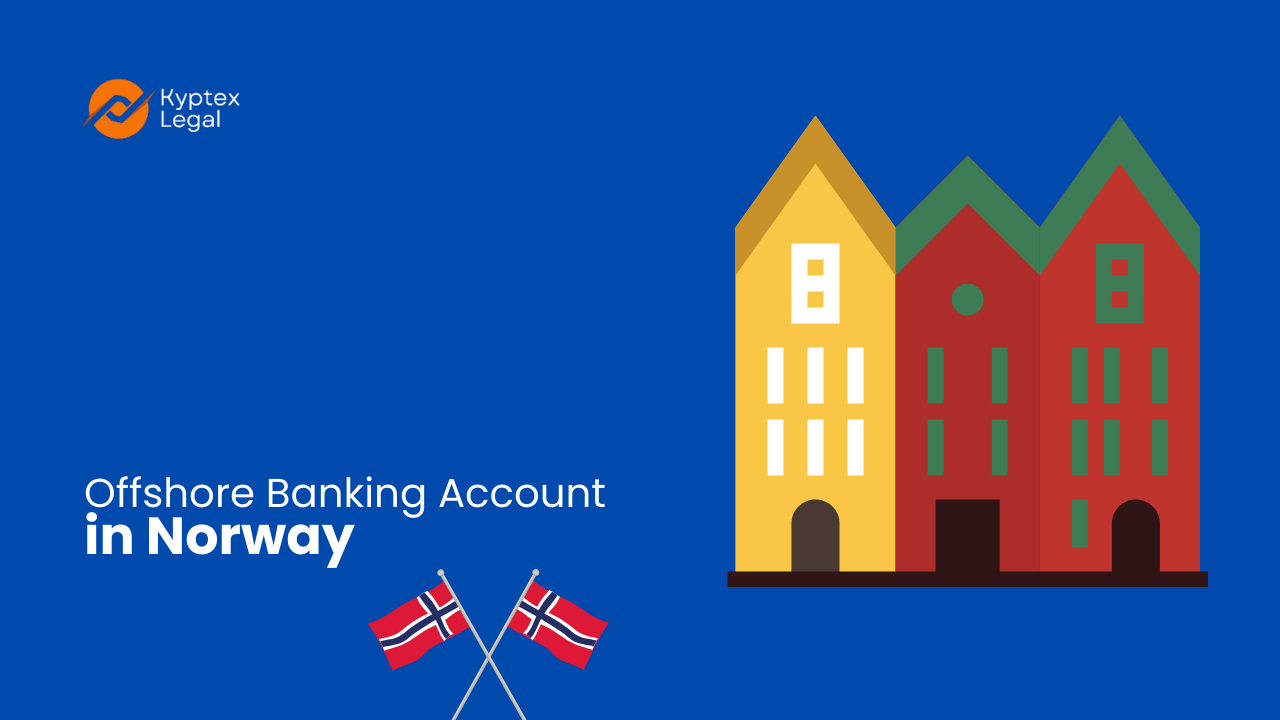
Establishing an offshore banking presence in Norway can provide numerous benefits to individuals worldwide.
However, what exactly is offshore banking in Norway and how does one begin? In this guide, we will investigate the what, why, and how of administering funds from abroad through a Norwegian financial institution.
Offshore banking is the act of undertaking banking transactions outside of one’s country of residence.
Individuals and businesses can capitalize on Norway’s political and economic stability, while simultaneously safeguarding their privacy and potentially reducing their tax obligations, by establishing an account with a Norwegian “digital offshore bank.”
Let us further investigate several critical components of Norway’s offshore finance environment.
What is Offshore Banking in Norway?
In Norway, offshore banking enables qualified non-residents to manage financial transactions through an account at a Norwegian bank without being physically present in the country. Accounts are generally held in foreign currencies and are designed for international trade and investments.
Numerous Norwegian offshore finance clients are drawn to its:
- Adherence to stringent privacy regulations and political neutrality
- The Norwegian krone (NOK) is a robust currency.
- A highly developed digital banking infrastructure Rankings as one of the most prosperous and business-friendly nations
Wealth management solutions, trusts, asset protection, and other private banking features are offered by Norwegian banks that operate offshore. Corporate services encompass online bank account management tools, foreign exchange, and international payments.
Why Might Someone Consider Offshore Banking in Norway?
An individual or business may choose to establish an offshore finance presence in Norway for a variety of strategic and practical reasons:
- Tax Planning – Certain offshore banking customers seek to mitigate their tax liabilities on foreign investments and income by channeling funds through a Norwegian bank. A network of tax treaties is in place in Norway to prevent the occurrence of double taxation.
- Asset Protection – Norway offshore banking provides an additional layer of protection from creditors and litigation by segregating personal assets from those held for business use. Norway’s banking confidentiality serves as an additional safeguard.
- Currency Diversification – By investing in the NOK, one is exposed to a stable currency that is supported by Norway’s substantial sovereign wealth funds and hydrocarbon reserves. This offers a means of protecting against fluctuations in one’s indigenous currency.
- International Payments – A Norwegian offshore bank account streamlines the process of payment processing and currency exchange for trade with European, Asian, and global partners. Within the SEPA zone, wire transfers are both rapidly executed and inexpensive.
- Increased Interest Rates – Certain Norwegian banks provide deposits with competitive interest rates that surpass those of other countries. This has the potential to increase the returns on both fiscal and operational balances.
Offshore banking in Norway offers a flexible and reputed solution for private wealth and commercial treasury management activities that extend beyond domestic borders for the appropriate client.
How to Open an Offshore Bank Account in Norway?
The procedure of opening an offshore bank account with a digital Norwegian bank is straightforward:
- Select a Bank – Conduct research on banks that provide services to offshore clients without a physical presence requirement. One that offers the ability to create an account online and support multiple currencies is a viable option.
- Complete the Application – Please provide personal information, identification documents, confirmation of address, and information regarding the source of funds. If you are applying as a business, you must either incorporate or register a company.
- Verification Process – The bank implements due diligence assessments, which often involve conducting video interviews. As mandated by Norwegian regulators, this validates identities and detects illicit activity.
- Fund the Account – Transfer an initial deposit to the account upon approval. The majority of institutions require a minimum opening balance that is equivalent to several thousand dollars.
- Begin your online banking experience – Access account services on the bank’s digital platform from any location. Customers may order debit cards and receive electronic statements.
The complete induction process typically requires 2-4 weeks. The process of opening an offshore current account in Norway from abroad has been simplified for the sake of convenience and compliance with a reputed digital bank.
Can a Foreigner Open an Offshore Banking Account in Norway?
Yes, foreign individuals and corporations are eligible to open an offshore banking account in Norway without physically residing in the country, provided that the eligibility criteria are satisfied. The primary prerequisites are as follows:
- Valid government-issued photo identification (typically a passport is required)
- Proof of residence, such as a utility receipt that is more than six months old
- If you are applying for a corporate account, you must provide business registration documents.
- Documentation regarding the source of wealth, such as tax returns or business records
- The bank’s minimum initial deposit is as follows:
Qualified foreigners are granted access to Norwegian financial services, such as multi-currency accounts, international funds transfers, and more sophisticated private banking amenities, either online or through a relationship manager, upon passing identification and background checks.
Non-residents are not prohibited from accessing Norway’s offshore sector due to their citizenship.